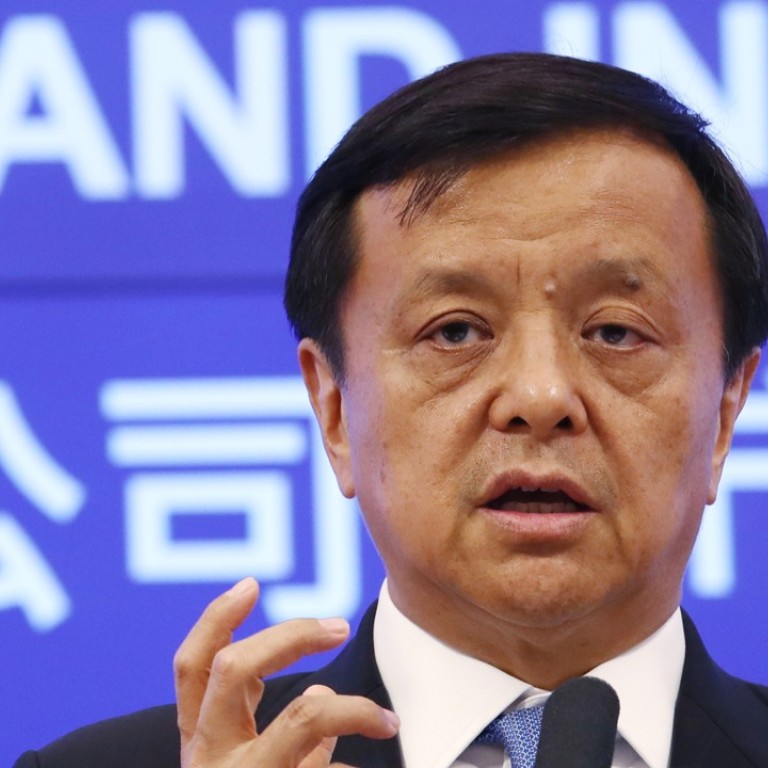
New listing rules likely to attract a dozen applicants in first round, says HKEX chief executive
Charles Li Xiaojia would not confirm if mobile phone maker Xiaomi, as many expect, will be at the front of the listing queue
More than a dozen technology and biotech companies could be part of the first batch to apply for a Hong Kong listing under new rules being introduced from next week, according to Charles Li Xiaojia, chief executive of Hong Kong Exchanges and Clearing (HKEX).
The new regime also opens the door to pre-revenue biotech companies, as well as dual-class shareholding companies already listed in the US, such as Alibaba Group Holding and Baidu.
“I do not know if companies will submit applications on Monday but I believe they will apply very soon after the new listing rules are effective,” said Li, as he announced the conclusions of a one-month consultation process.
“Many companies indicate they are ready to file a listing application. What they are waiting for is the introduction of the new listing regime.”
“It will not be in the single digits, more than a dozen companies will apply,” he said.
Li believes the first batch of listings under the new rules will take place in June and July, while a second round will happen in the autumn, after the exchange’s summer break.
He would not confirm if mobile phone maker Xiaomi, as many expect, will be at the front of the listing queue.
“I have some idea. I cannot talk, as we are the regulator,” he said.
The one-month consultation on the proposed rule changes ended in late March, after receiving 283 responses. A majority were in support of the reform, but some institutional investors and fund houses called for greater protections for investors.
Upon consideration, HKEX said it would require companies with multiple classes of shares to set up a corporate governance committee composed entirely of independent non-executive directors. Its election will be on a one-share-one-vote principle.
HKEX has decided not to adopt a measure that would cap the holders of premium-class shares to less than 50 per cent of the total issued shares in the company.
The founders or key management who own the premium class of shares could be in the form of limited partnerships, trusts, private companies or other vehicles. But the shares of these entities cannot be transferred to other people or entities not entitled to own premium shares.
Another requirement stipulates that the special voting rights attached to premium shares will be invalid if an individual ceases to act as a director of the company or if they die.
HKEX plans to have another consultation before July 31, on whether corporations should be allowed to own premium shares.
The exchange also provided guidelines for the definition of sophisticated investors who can invest in biotech companies, as well as guidelines on cornerstone investors who invest in the companies ahead of an IPO.
HKEX is launching the reforms to capture more tech listings, in the face of intense competition from mainland China, as Beijing has also launched a scheme to attract tech companies.
Li, however, said he believes companies could opt to list both in Hong Kong and the mainland.
Paul Lau, a partner and head of capital markets at KPMG China, said there has been strong interest from both Chinese and international companies in emerging sectors.
“We expect there will be at least 10 to 15 new-economy companies listed under the new regime by the end of 2018. The actual number could be higher depending on market sentiment and how fast the listing applicants can move through the vetting process,” said Lau.
“While it is possible that some of those companies may opt to list in China, considering the potential deal size, it is also possible that these companies could also have a secondary listing in Hong Kong to take advantage of liquidity in both markets.”
Stephen Chan Yiu-kwong, a partner with US-based law firm Dechert in Hong Kong, also said foreign companies had expressed strong interest in the reforms.
“We have some US-based clients who have expressed interest to list their China operations in Hong Kong,” he said. “Our clients would like to be among the first batch to list under the new rules. Some may set a listing target in Hong Kong by the end of this year.”
Chan added that technology valuations may be higher in the US, but that Hong Kong is considered a home market for many Chinese companies.
“International investors can trade shares in these Chinese companies in Hong Kong, while mainland investors can also trade shares of these companies via the Stock Connect,” he said.

